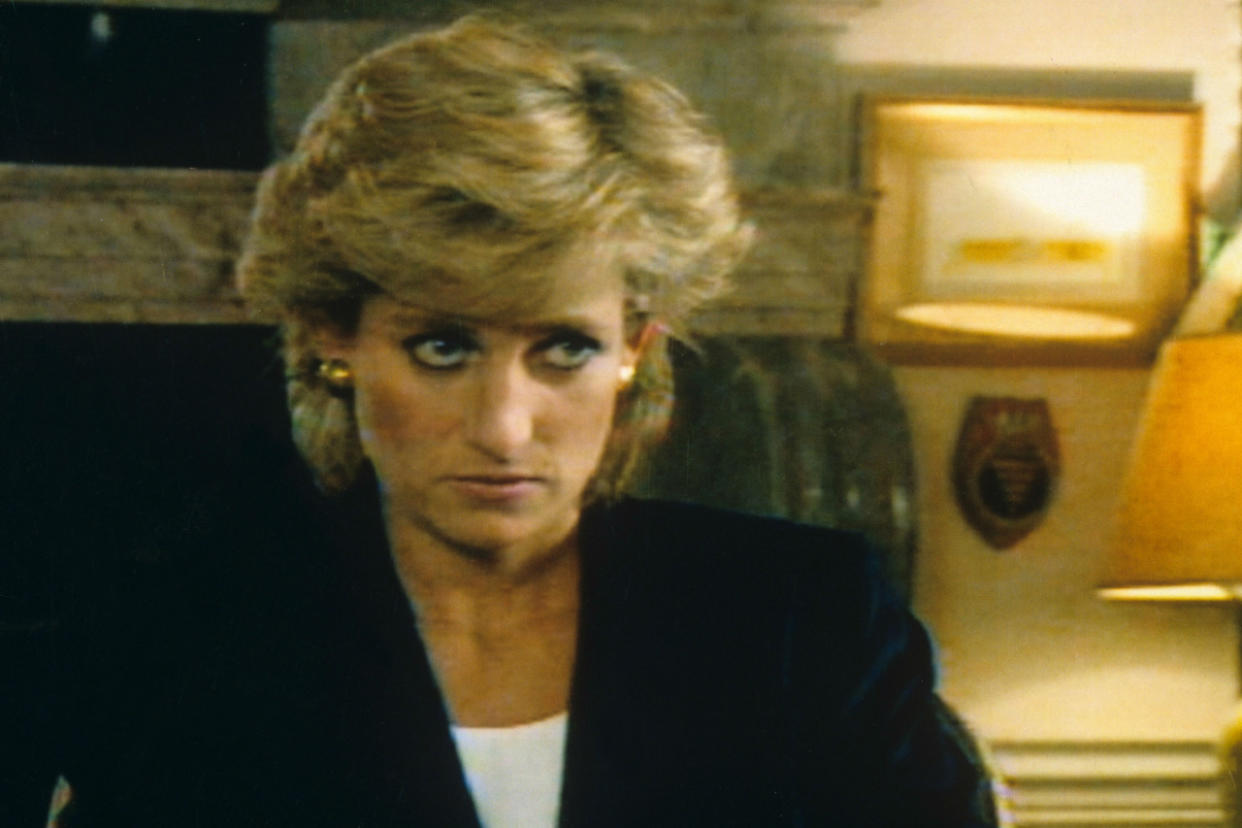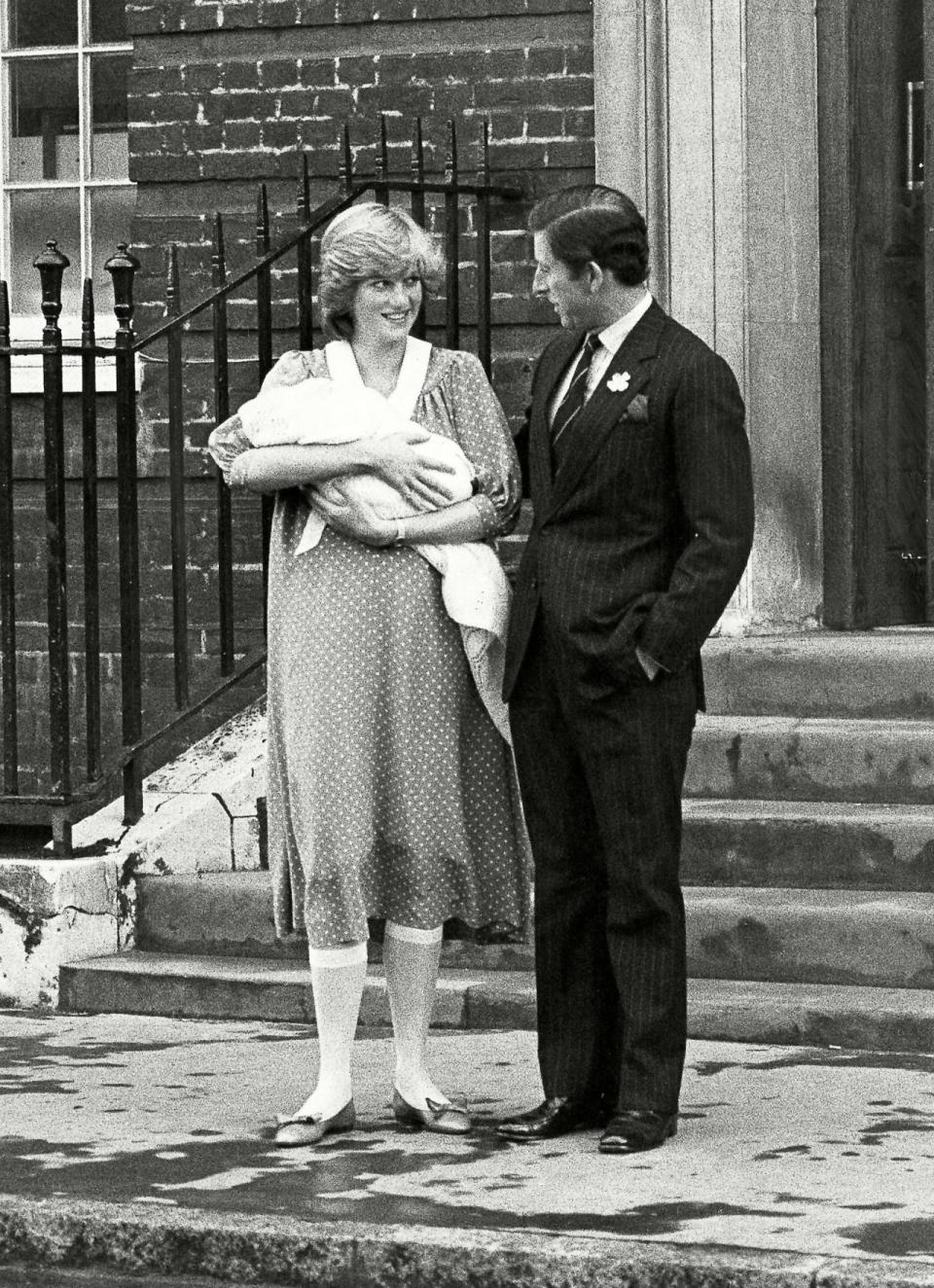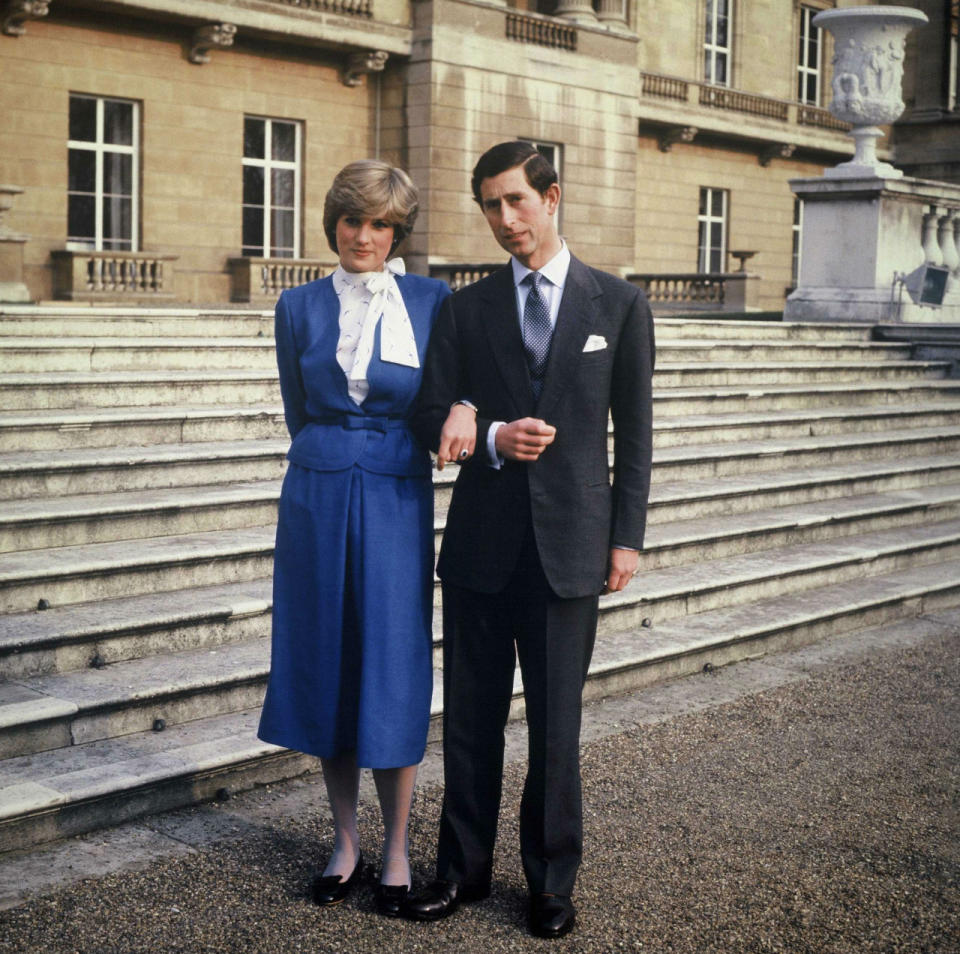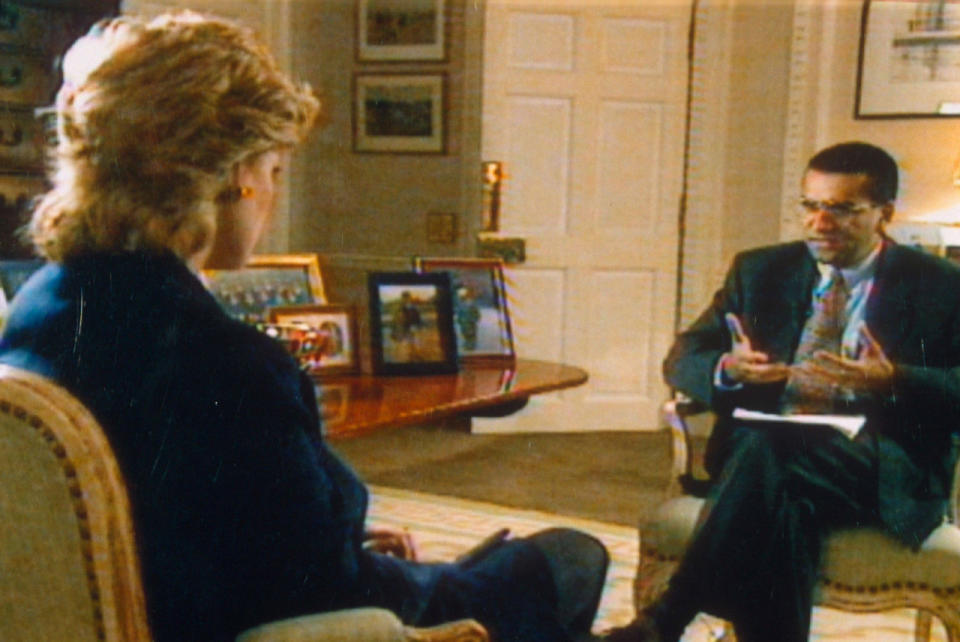The Amazing Story Behind The Infamous Princess Diana Panorama Interview

On November 20, 1995, the BBC news programme ‘Panorama’ aired Princess Diana’s first solo interview since her marriage to Prince Charles, broadcast two years after the couple had announced their separation. A staggering 22.8 million watched it go out, and it remains one of the highest-rated BBC programmes of all time.
In it, she appeared dressed in black, kohl-eyed and timid – though some claimed she was very purposely playing for sympathy – and dropped a series of bombshells. The most famous line, uttered after interviewer Martin Bashir quizzed her on Prince Charles’s infidelity, explained how 'there were three of us in this marriage, so it was a bit crowded’, the third person being Camilla Parker Bowles, now the Duchess of Cornwall.
She then admitted that she herself had indeed been involved in an affair – some thought for as long as five years – with James Hewitt, a cavalry officer who had been employed to teach her horse-riding. She said of their relationship, and his consequent tell-all expose in the book 'Princess In Love’: “Yes, I adored him. Yes, I was in love with him. But I was very let down.”
And it was all pretty explosive from the start.

Organised In Secret
Amazingly, the interview and its organisation was conducted entirely in secret. Buckingham Palace was not informed of any of it, and even the BBC chairman Lord Hussey did not find out about it until just days before it was due to air. Diana hadn’t even told her own press secretary, Geoff Crawford, who later resigned over it. Revelations that Prince Charles’s affair with Camilla Parker Bowles had come to light in a book released the previous year, so she clearly wanted to make her own very personal statement. We see an extremely more guarded relationship between the press and the Royal Family today, one which was likely spawned by the Bashir interview.

Post-Natal Depression
While the major scoop from the interview was Diana’s admission of infidelity with James Hewitt, she also revealed that she had suffered post-natal depression following the birth of Prince William. “I was unwell with post-natal depression, which no one ever discusses, post-natal depression, you have to read about it afterwards, and that in itself was a bit of a difficult time,” she said. “You’d wake up in the morning feeling you didn’t want to get out of bed, you felt misunderstood, and just very, very low in yourself. I had never had depression in my life.” She also added that she received little sympathy from those around her. “It gave everybody a wonderful new label – Diana’s unstable and Diana’s mentally unbalanced. And unfortunately that seems to have stuck on and off over the years.”
Self-Harm
She also admitted to self-harm, an issue significantly more discussed in the media today than it was back in 1995. “I did inflict upon myself… I just hurt my arms and my legs; and I work in environments now where I see women doing similar things and I’m able to understand completely where they’re coming from.” Her bulimia too was discussed, describing it as 'a secret disease’, admitting she’d make herself sick as many as five times a day.

The Press Went Ballistic
The Daily Mail said that the admission that she too had been unfaithful 'plunged the monarchy into the greatest crisis since the Abdication’, referring to King Edward VIII’s decision in 1936 to leave the throne and marry Wallis Simpson, a divorced, American socialite. The fallout nearly got the BBC’s Director-General sacked too. The BBC chairman at the time, Lord Hussey, put serious pressure on director-general John Birt, now Lord Birt, to resign over it. Birt told BBC2’s Arena programme in 2005, during a documentary on the interview: “The chairman set out to unseat me. He immediately sought to take action against me. He tried to get the governors to condemn the programme, which they refused to do. He was very vengeful.” This was likely to do with links that Hussey had to the monarchy – his wife was a lady-in-waiting to the Queen, and loyal to Prince Charles.

It Forced Divorce
Following the revelations of the interview, it forced the hand of Charles and Diana to formerly end their marriage, with The Queen reportedly writing to both Diana and her son personally to advise them to divorce. When they finally received their decree absolute in August, 1996, Diana received a lump sum of £17 million, as well as £400,000 per month, coupled with a confidentiality agreement which meant that neither could discuss the intricacies of their marriage in public.
Regrets
It emerged earlier this year from some of her closest confidants that she regretted the interview. Her former private secretary Patrick Jephson told the Mail on Sunday: “I think by the time of the broadcast, she deeply regretted it, not least because it did nothing to advance her cause. I think the scales fell from her eyes and suddenly what had been rather a subversive or daring scheme - or however they [the BBC] had dressed it up for her - it suddenly in the cold light of day didn’t look like such a good idea. I knew from her general demeanour, her fidgeting, that she was not at all confident about what she had done and that the full implications were dawning on her.”

Dirty Tricks?
Sarah Ferguson even claimed that Bashir 'tricked’ her, and that some of what she said may have been 'off the record’. “She never would have said all the things she said if it hadn’t been for the way he tricked her,” she told The View. “He lulled her into a comfort zone by being this wonderful magnanimous man and by saying 'I’m a family man as well’ and got her to talk that way. And, of course, 'off the record’ doesn’t exist.”
Image credits: Rex Features

 Yahoo Movies
Yahoo Movies 
